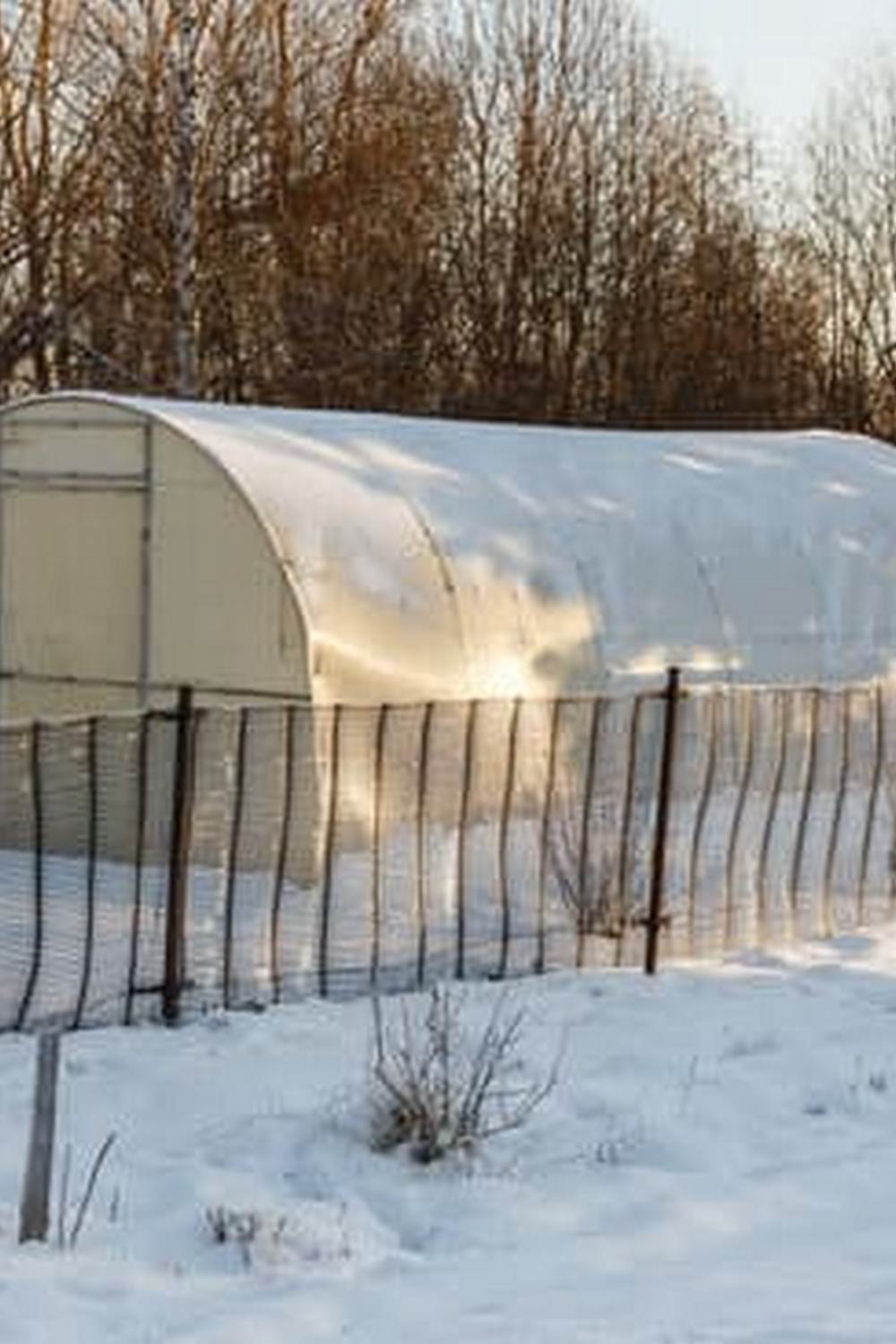The use of natural weed killers in vegetable gardens is crucial for maintaining the health and sustainability of our plants. Chemical weed killers may seem like a quick fix, but they come with potential risks to our health, the well-being of our pets, and the surrounding environment.
In this article, we will explore the importance of using natural alternatives and delve into their benefits for overall garden health. By opting for natural solutions, we can ensure that our vegetable gardens thrive while safeguarding ourselves and the world around us.
Common Types of Weeds in Vegetable Gardens
Identification and Description of Common Types of Weeds
When it comes to managing weeds in vegetable gardens, it is important to be able to identify and understand the characteristics of the common types of weeds that may invade your garden. By being able to recognize these weeds, you can effectively implement measures to control them and prevent their growth from negatively impacting your vegetable plants.
One common weed found in vegetable gardens is the dandelion (Taraxacum officinale). Dandelions are easily recognizable with their bright yellow flowers and fluffy seed heads. Not only do they compete for nutrients with your vegetable plants, but their deep taproots can also deplete soil moisture.
Another common weed is the purslane (Portulaca oleracea), which has succulent leaves and small yellow flowers. Purslane can spread rapidly and smother nearby plants due to its ability to produce a large number of seeds. This weed can reduce the overall productivity of your vegetable garden by competing for water, sunlight, and nutrients.
Additionally, there’s the crabgrass (Digitaria spp.), which is known for its ability to quickly take over bare soil areas. Crabgrass produces large quantities of seeds, making it difficult to eradicate once established. Its presence in your vegetable garden can hinder plant growth by shading out young vegetable seedlings.
The Negative Impact of Weeds on Vegetable Plants and Yields
Weeds not only create an unsightly appearance in your vegetable garden but also pose various threats to the growth and productivity of your vegetable plants. They compete with vegetables for essential resources such as sunlight, water, nutrients, and space. By doing so, weeds can stunt the growth of your crops or even cause them to die due to lack of access to vital resources.
Furthermore, some types of weeds serve as hosts for pests and diseases that can harm your vegetables. For example, certain types of weeds attract aphids, which can then spread to your vegetable plants and cause damage. Weeds can also serve as a breeding ground for fungi and other pathogens that can infect your crops.
By understanding the impact of weeds on vegetable plants, gardeners can appreciate the importance of implementing effective weed control measures in their vegetable gardens. Through the use of natural weed killers, gardeners can reduce the competition between weeds and vegetable plants, allowing their crops to thrive without the negative effects of weed infestation.
Potential Risks of Chemical Weed Killers in Vegetable Gardens
Health Concerns for Humans, Pets, and the Environment
When it comes to using chemical weed killers in vegetable gardens, there are several potential risks that gardeners should be aware of. One of the primary concerns is the health impact on humans and pets who may come into contact with these chemicals. Many chemical weed killers contain harmful ingredients that can cause skin irritation, eye damage, respiratory issues, or even more serious health problems if ingested or inhaled.
In addition to harming humans and pets, the use of chemical weed killers also poses a threat to the environment. These chemicals can contaminate soil, water sources, and air quality, leading to negative effects on wildlife and local ecosystems.
Leaching and Runoff Issues Affecting Local Ecosystems
Another significant risk associated with chemical weed killers in vegetable gardens is leaching and runoff. These chemicals can easily leach into the soil and find their way into groundwater sources, contaminating drinking water supplies for both humans and animals.
Moreover, during heavy rainfall or irrigation events, these chemicals can be washed away from garden beds and end up in nearby water bodies such as rivers or lakes through runoff. The runoff of chemical weed killers contributes to water pollution, disrupting aquatic ecosystems and threatening fish populations.
The Development of Herbicide Resistance
Over time, the repetitive use of chemical weed killers can lead to herbicide resistance among certain weed species. As weeds are repeatedly exposed to these synthetic chemicals, they can adapt and develop genetic mutations that make them resistant to their effects.
This creates a problem for gardeners as the effectiveness of chemical herbicides diminishes over time. In contrast to natural weed control methods that promote biodiversity and balance within the ecosystem, reliance on chemical options often results in the emergence of superweeds that are harder to control.
By understanding these potential risks associated with using chemical weed killers in vegetable gardens, gardeners can make informed decisions about alternative methods that are safer for both their plants and the environment. Embracing natural weed killers not only reduces the risk of negative health impacts but also promotes sustainable gardening practices for long-term garden health and productivity.
Top Natural Weed Killers for Vegetable Gardens
When it comes to maintaining a thriving vegetable garden, keeping the weeds at bay is essential. Using natural weed killers not only helps you maintain a healthy garden, but it also promotes sustainability and reduces the risks associated with chemical weed killers. In this section, we will explore some of the top natural weed killer options for vegetable gardens.
Mulching is a highly effective method for suppressing weeds in vegetable gardens. By covering the soil around your plants with organic mulch such as straw, wood chips, or shredded leaves, you create a barrier that inhibits weed growth. Mulching not only blocks sunlight from reaching the weed seeds and prevents them from germinating but also conserves moisture in the soil, making it harder for weeds to establish themselves.
Another popular natural weed killer option is a homemade vinegar-based spray. This simple recipe involves combining white distilled vinegar, salt, and dish soap. The acetic acid in vinegar acts as a desiccant, causing the weeds to dry out and die. It’s important to note that this spray should be used selectively and avoid contact with any desirable plants as it can harm them too.
Corn gluten meal is an organic byproduct of corn milling that acts as a pre-emergent herbicide. When applied correctly before weed seeds sprout, corn gluten meal prevents their root development and suppresses future growth. It is particularly effective against annual weeds like crabgrass and dandelions. Corn gluten meal also contains nitrogen, which provides additional nutrients for your vegetable plants.
_table_
| Natural Weed Killer Option | Mechanism of Action | Application Method |
|---|---|---|
| Mulching | Blocks sunlight and conserves moisture in the soil | Spread a layer of organic mulch around plants |
| Homemade Vinegar-based Weed Spray | Desiccates weeds, causing them to dry out and die | Spray directly onto weeds, avoiding contact with desirable plants |
| Corn Gluten Meal | Acts as a pre-emergent herbicide, inhibiting root development of weed seeds | Apply before weed seeds sprout in the desired areas |
In addition to these methods, introducing beneficial insects into your vegetable garden can help control weed growth. For example, ladybugs and lacewings are natural predators that feed on aphids and other insects that spread weeds. Encouraging their presence in your garden can help reduce the population of weed-spreading pests.
By choosing natural weed killers for your vegetable garden, you promote a healthier environment for your plants and minimize the risk of health concerns associated with chemical weed killers. These options are safe for humans, pets, and the environment while providing effective weed control. Experiment with different methods to find what works best for your specific garden needs.
Tips for Safe and Effective Application of Natural Weed Killers
Using natural weed killers in vegetable gardens is not only beneficial for the health of your plants, but also for the environment. However, it is important to know how to safely and effectively apply these natural weed killers to ensure optimal results. Here are some tips to keep in mind:
- Read and follow the instructions: Before applying any natural weed killer, carefully read the instructions provided by the manufacturer. Each natural weed killer may have specific application instructions that you need to follow for best results.
- Wear protective gear: When applying natural weed killers, it is essential to wear protective gear such as gloves, long sleeves, and goggles to prevent direct contact with your skin or eyes. Some natural ingredients can still cause irritation or allergic reactions.
- Choose appropriate timing: Timing is crucial when it comes to applying natural weed killers. It’s best to apply them on a sunny day when there is no rain in the forecast for at least 24 hours. This way, the weed killer has a better chance of being absorbed by the weeds before being washed away.
- Apply directly to weeds: Unlike chemical herbicides that can be applied over an entire area, most natural weed killers are contact-based and need to be applied directly to the weeds. Use a spray bottle or a brush applicator to target individual weeds without affecting your vegetable plants.
- Be patient and persistent: Natural weed killers often take longer to show results compared to their chemical counterparts. It may take several applications over a period of time before you begin seeing significant progress in weed suppression.
- Avoid drift: Take care not to spray or apply natural weed killers near desirable plants or vegetable crops as they may also be affected by indiscriminate spraying.
- Weed after application: Once you have applied a natural weed killer, it is still important to manually remove any dead weeds from your vegetable garden regularly. This helps prevent new weeds from establishing themselves and allows your vegetable plants to thrive.
By following these tips, you can ensure a safe and effective application of natural weed killers in your vegetable garden. Remember, using natural weed killers is not a one-time fix, but rather a long-term commitment to sustainable gardening practices.
Natural Weed Control Strategies for Specific Vegetables
Vegetable gardens can be a haven for weeds, which compete with the vegetable plants for nutrients, water, and sunlight. In order to maintain a healthy and productive garden, it is important to implement specific natural weed control strategies for different types of vegetables. By targeting weeds effectively and preventing their growth, gardeners can ensure the optimal health and yield of their vegetable plants.
Weed Control for Leafy Greens
Leafy greens like lettuce, spinach, and kale are highly susceptible to weed competition due to their shallow root systems. To control weeds in leafy greens beds, consider the following strategies:
- Hand weeding: Regularly inspect the beds and remove any visible weeds by hand.
- Intercropping: Plant faster-growing vegetables like radishes or onions between rows of leafy greens to minimize weed growth.
- Mulching: Apply a thick layer of organic mulch like straw or leaves around the plants to suppress weed growth.
Weed Control for Root Vegetables
Root vegetables such as carrots, beets, and radishes have deeper roots that make them more resilient against weed competition. However, it is still crucial to manage weeds efficiently in order to achieve optimal yields. Here are some effective methods:
- Cultivation: Use a hoe or hand tool to cultivate the soil around root vegetables, breaking up any weed seedlings before they establish roots.
- Pre-emergent mulching: Before planting seeds or seedlings of root vegetables, spread a layer of mulch over the bed to prevent weed seeds from germinating.
- Companion planting: Pair root vegetables with companion plants that naturally deter weeds or act as living mulches. For example, planting onions alongside carrots can help repel pests and inhibit weed growth.
Weed Control for Vining Crops
Vining crops like cucumbers, melons, and squash have sprawling growth habits that can make weed control challenging. Here are some strategies to keep weeds at bay:
- Wide plant spacing: Allow ample space between vining plants to reduce competition with weeds.
- Trellising: Train vining crops to grow vertically on trellises or stakes. This not only saves space but also limits weed growth by providing less ground area for weeds to thrive.
- Organic herbicides: Consider using organic herbicides, such as vinegar-based weed sprays, carefully applying them directly on the leaves of unwanted weeds while avoiding contact with the desirable plants.
By tailoring weed control strategies to specific vegetables, gardeners can effectively minimize weed competition and maximize the health and productivity of their vegetable gardens. It is important to remember that a combination of methods may be necessary, depending on the severity and variety of weeds present in the garden. With proper weed management practices, gardeners can enjoy thriving vegetable plants free from the interference of unwanted weeds.
Maintenance Practices to Minimize Weed Growth in Vegetable Gardens
To maintain a healthy and productive vegetable garden, it is essential to minimize weed growth. Weeds not only compete with vegetable plants for nutrients and water but also provide hiding places for pests and diseases. Implementing regular garden maintenance practices can effectively suppress weeds and promote the growth of your vegetable crops.
One important strategy for minimizing weed growth is crop rotation. By alternating the vegetables you plant in each bed or area of your garden each year, you disrupt the life cycles of weeds that are specific to certain crops. This reduces the chance of weeds becoming established and allows you to target them more effectively. Crop rotation also helps improve soil health, as different vegetables have varying nutrient requirements, reducing the build-up of pathogens and pests.
Intercropping is another technique that can be used to suppress the growth of weeds. Planting quick-growing crops between slower-growing ones creates shading that prevents weeds from gaining access to sunlight they need for photosynthesis. Some examples of good combinations include planting lettuce between rows of tomatoes or planting radishes between rows of carrots.
Companion planting is a gardening method where compatible plants are grown together to benefit each other. Certain plant combinations can help naturally control weeds by either repelling them or attracting beneficial insects that feed on them. For example, planting marigolds around your vegetable beds can deter nematodes and other harmful pests, while attracting pollinators that aid in vegetable production.
Proper watering techniques also play a crucial role in minimizing weed growth. Watering deeply but less frequently encourages deep root growth in vegetable plants, making them more resilient to weed competition. Additionally, applying mulch around plants can reduce evaporation and keep soil moisture consistent, preventing weed seeds from germinating.
| Maintenance Practices | Description |
|---|---|
| Crop rotation | Alternating vegetable crops in different areas of the garden each year to disrupt weed life cycles and improve soil health. |
| Intercropping | Planting fast-growing crops between slower-growing ones to create shading that suppresses weed growth. |
| Companion planting | Growing compatible plants together that either repel weeds or attract beneficial insects that feed on them. |
| Proper watering techniques | Watering deeply but less frequently to encourage deep root growth in vegetable plants and applying mulch to maintain soil moisture. |
By implementing these maintenance practices, you can minimize weed growth and create a healthier environment for your vegetable garden. Along with regular weeding and monitoring for any new weed growth, these strategies will help ensure the success and sustainability of your vegetable crop.
Additional Resources and Tools for Natural Weed Control
When it comes to natural weed control in vegetable gardens, there are a plethora of resources and tools available to help gardeners effectively manage and prevent weed growth. For those who are looking for further information and guidance on natural weed control methods, there are several recommendations for additional resources that can be consulted.
One option is to explore further reading materials, blogs, or websites that provide comprehensive information on natural weed control. These resources often detail specific techniques, homemade remedies, and organic products that can be used for weed suppression. Additionally, they may offer valuable tips and tricks from experienced gardeners who have successfully implemented natural weed control strategies in their own vegetable gardens.
Another valuable resource is gardening tools specifically designed for effective weed management. There are various tools available on the market that aid in removing weeds without disturbing the surrounding soil or damaging vegetable plants. Some examples include long-handled hoes for slicing weeds at the roots, hand weeders for precision removal of individual weeds, and oscillating stirrup hoes for cutting down larger areas of weeds with minimal effort.
Lastly, seeking assistance from local agricultural extension offices or community resources can provide invaluable advice and guidance on natural weed control methods specific to the geographical region. These organizations often offer educational classes or workshops where gardeners can learn more about sustainable practices and ask questions about managing weeds in their vegetable gardens. Additionally, they may have access to resources such as seed swaps or tool lending programs that promote eco-friendly gardening practices.
By utilizing these additional resources and tools, gardeners can enhance their knowledge and skills in natural weed control methods for their vegetable gardens. By staying informed and utilizing effective techniques and tools, gardeners can successfully manage weeds while promoting the overall health of their plants and the environment.
Conclusion
In conclusion, the use of natural weed killers in vegetable gardens is not only important, but it also offers numerous benefits for overall garden health and sustainability. Throughout this article, we have explored the common types of weeds found in vegetable gardens and how they can negatively impact plant growth and reduce yields. We have also discussed the potential risks associated with chemical weed killers, highlighting their detrimental effects on human health, pets, and the environment.
To address these concerns, we have provided a comprehensive list of top natural weed killers for vegetable gardens. From mulching to homemade vinegar-based sprays to corn gluten meal as a pre-emergent suppressor, these options offer effective mechanisms of action without the harmful consequences associated with chemicals. Additionally, introducing beneficial insects for weed control is another eco-friendly approach that can contribute to a healthier garden ecosystem.
In order to ensure safe and effective application of natural weed killers, we have offered step-by-step instructions along with tips on timing and frequency of use. It is crucial to take precautions to avoid damaging vegetable plants while targeting weeds. Furthermore, we have provided advice on controlling weeds specific to different vegetable crops and shared maintenance practices that minimize weed growth in vegetable gardens.
By embracing natural weed killers and implementing sustainable gardening practices, we not only protect our plants and ourselves from the dangers of chemical weed killers but also contribute to the well-being of the environment. The switch to eco-friendly practices is an investment in our future by promoting a healthier and more sustainable world. So let’s make the choice to prioritize natural weed control methods in our vegetable gardens and reap the benefits for years to come.

If you’re looking to get into vegetable gardening, or are just looking for some tips on how to make your current garden better, then you’ve come to the right place! My name is Ethel and I have been gardening for years. In this blog, I’m going to share with you some of my best tips on how to create a successful vegetable garden.





